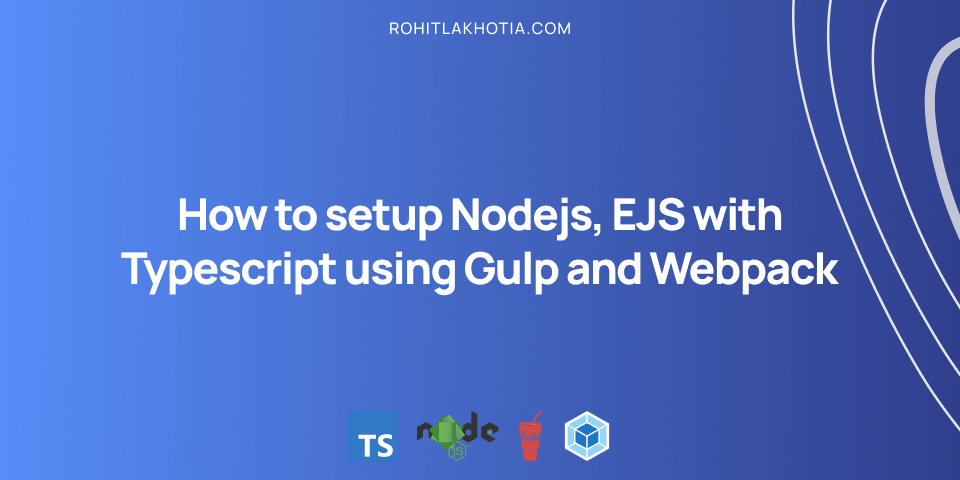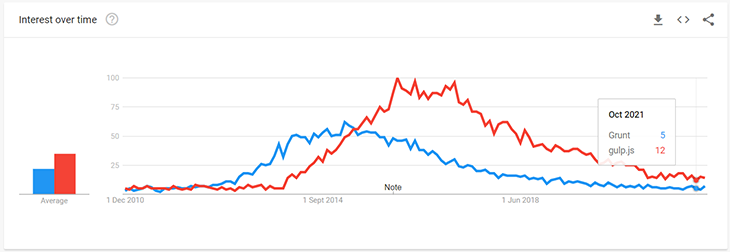

With these two files created, you can then run the following command in your console: webpack. To demonstrate how webpack works at a very basic level, you'll need to create two separate files: entry.js and index.html. Successfully by opening a terminal and typing webpack.

You can check to make it sure it was installed Webpack should now be available anywhere.
#Why use webpack vs gulp install
Once done, simply enter the following into your command line: npm install -g webpack To install webpack you need to have node.js installed. Therefore, this guide will only cover the basics and point you in the right direction to learn about more technical topics. The specific setup you need will depend heavily on your individual project. In fact, someone has written a book about it. Webpack configuration is such a dense subject that one could write an entire book on the subject. You can find more detailed information about setting up webpack on their website however, since the examples below will assume an npm install, there may be differences between this guide and other examples you see elsewhere. Webpack works best with npm, so this guide will focus on an npm install. The creators have published an in-depth guide for those wishing to migrate to webpack 2 if you're still using version 1 as that has now been deprecated.ĭifferences in the new version will be addressed at the end of this article or as they arise. This guide will focus primarily on the original incarnation of webpack 2 since the versions are mostly the same. Therefore, users don't have to wait for unnecessarily long load times to start using the app.Ī new version, webpack 2.2.0, was released in early 2017, and the development team is asking for feedback from users on which features they would like to see improved. In contrast, webpack generates several smaller "bundle" files, which allows it to load parts of an app asynchronously. Such files can be as large as 15 MB for dynamic web apps, which will take ages to load. Other module bundlers typically combine all of the modules to generate a single, large bundle.js file. webpack only loads what you need when you need it.Consequently, any artifact may be divided into small, manageable chunks for reuse. This includes JS files, CSS, images, and HTML. With webpack, everything can be a module.First, you need to understand two basic principles: If you've never seen a webpack config file before, they may appear daunting at first glance however, once you grasp the syntax and the core philosophies behind the bundler, reading them will feel like second nature. To allow integration of third party libraries as modules.To allow every static asset to be a module.To divide dependency trees into chunks that are loaded on demand.

There are several popular JavaScript module bundlers including Browserify, rollup, and jspm but webpack remains a favorite because it treats web assets as modules with dependencies.Īccording to webpack's website, the creators developed their module bundler with the following goals in mind: Webpack generates static assets that represent modules with dependencies.
#Why use webpack vs gulp code
If you decide to manage your code using modules, you need a module bundler, and there is no better bundler than webpack. The importance of organization can never be understated not only does it benefit individual programmers, but it also helps everyone else who must use the same codebase in the future. Module systems make it easier for developers to keep things organized, and they ensure that content is delivered quickly and efficiently to users. One of the best ways to manage the additional load is to use a module system, such as webpack. Since web apps are greatly dependent on JavaScript, the client side is having to handle more and more. As the line between websites and web apps has continued to erode, the possibilities and challenges for developers have subsequently evolved.


 0 kommentar(er)
0 kommentar(er)
